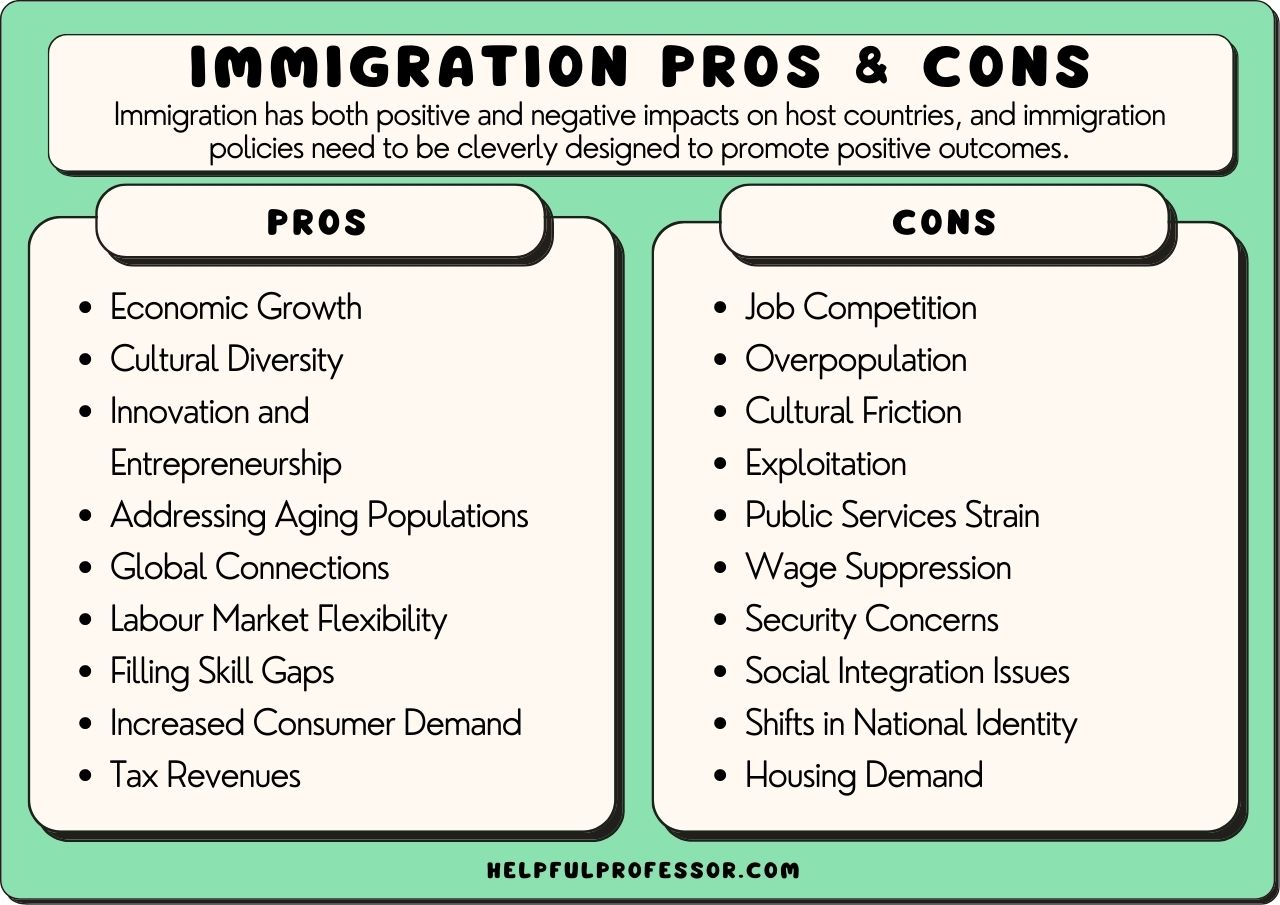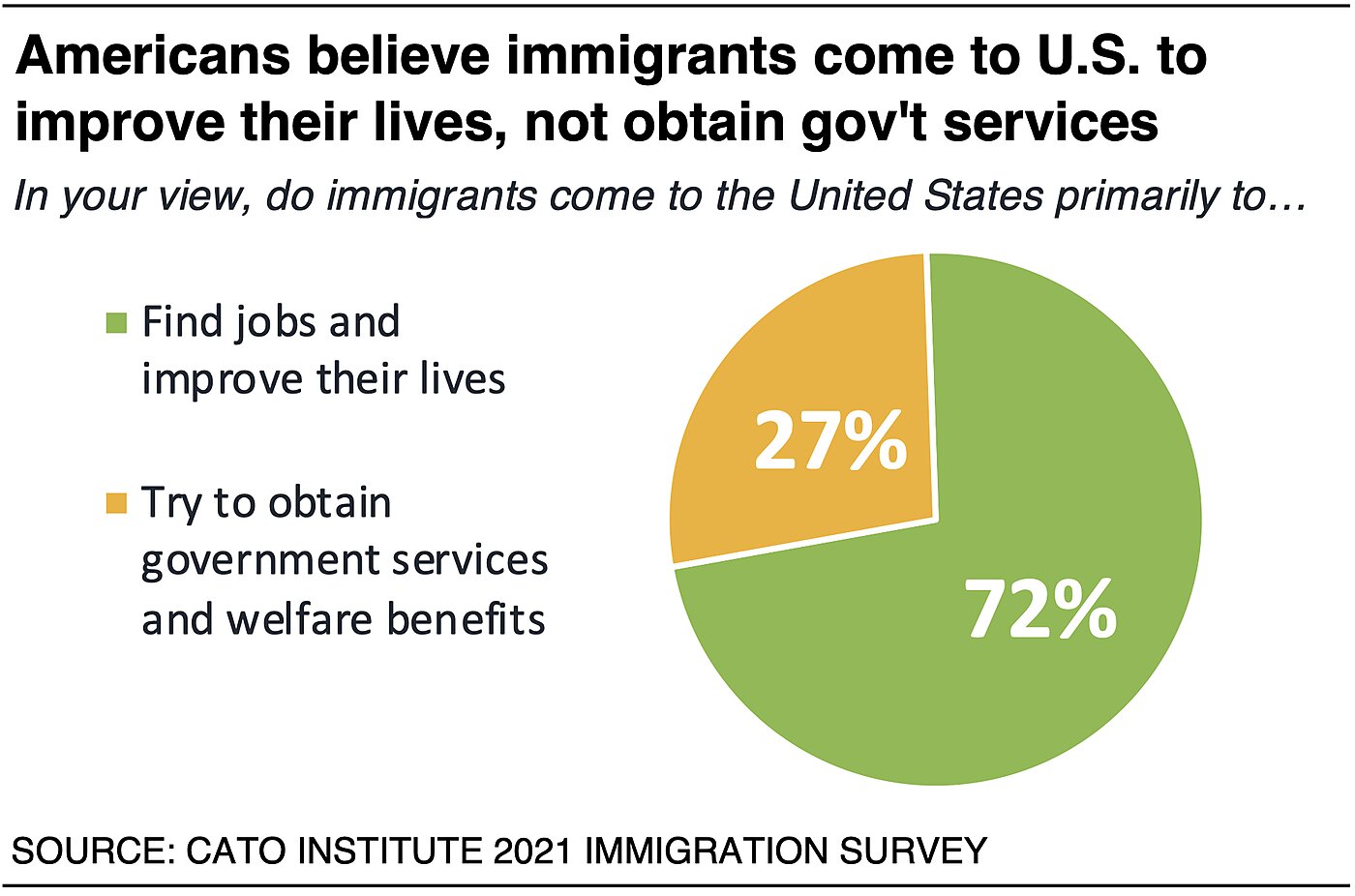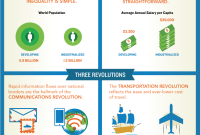Immigration policies are at the forefront of global debates, sparking discussions on their multifaceted impacts. This essay delves into the intricate effects of immigration policy changes on communities and businesses, exploring the demographic shifts, economic implications, and socio-cultural transformations that accompany these policies.
From altering the composition of neighborhoods to influencing labor markets, immigration policies have far-reaching consequences. This essay examines the challenges and opportunities that arise from these changes, providing insights into the complex relationship between immigration and the communities and businesses that are affected.
Immigration Policy Changes and Their Impact on Communities

Recent immigration policy changes have significantly influenced the demographics of communities. These changes have affected the availability of resources such as schools and healthcare systems, leading to both challenges and opportunities.
One significant change has been the increased number of immigrants settling in urban areas. This influx has brought diversity and cultural enrichment to these communities. However, it has also strained local resources, particularly in areas such as housing, education, and healthcare.
Education
In some communities, the influx of immigrant students has led to overcrowding in schools. This has put a strain on teachers and resources, and can make it difficult for all students to receive the attention they need. Additionally, language barriers can pose challenges for immigrant students, making it difficult for them to fully participate in the classroom.
Healthcare
Immigrants often face barriers to accessing healthcare, including language barriers, lack of insurance, and cultural differences. This can lead to health disparities and make it difficult for immigrants to get the care they need. Additionally, the increased demand for healthcare services in communities with large immigrant populations can strain local healthcare systems.
The Economic Effects of Immigration Policy Changes on Businesses
Immigration policy changes have had a significant impact on the availability of labor for businesses. In many countries, businesses have relied on immigrant workers to fill low-skill and low-wage jobs, as well as highly skilled positions in fields such as technology and healthcare.
Changes in immigration policies, such as restrictions on the number of visas issued or increased enforcement of immigration laws, can make it more difficult for businesses to find the workers they need.Data shows that immigration has a positive impact on business growth and innovation.
Studies have found that immigrant-owned businesses create jobs and contribute to economic growth. Additionally, immigrants are more likely to start businesses than native-born citizens, and they are more likely to patent new inventions.Businesses face challenges and opportunities in adapting to changing immigration policies.
On the one hand, businesses may need to invest in new technologies or training programs to make up for the loss of immigrant workers. On the other hand, businesses may also find opportunities to hire immigrant workers who have skills that are in high demand.
Impact on Labor Availability
Immigration policy changes have affected the availability of labor for businesses in several ways. First, changes in immigration policies can affect the number of immigrant workers who are available to work in a particular country. For example, if a country reduces the number of visas it issues to foreign workers, it will become more difficult for businesses to find the workers they need.Second,
changes in immigration policies can affect the cost of labor. For example, if a country increases the minimum wage for foreign workers, it will become more expensive for businesses to hire them.Third, changes in immigration policies can affect the skills and experience of the immigrant workers who are available to work in a particular country.
For example, if a country changes its immigration policies to favor highly skilled workers, it will become more difficult for businesses to find low-skilled workers.
Impact on Business Growth and Innovation
Immigration has a positive impact on business growth and innovation. Studies have found that immigrant-owned businesses create jobs and contribute to economic growth. Additionally, immigrants are more likely to start businesses than native-born citizens, and they are more likely to patent new inventions.For
example, a study by the National Bureau of Economic Research found that immigrant-owned businesses create more jobs than native-born-owned businesses. The study also found that immigrant-owned businesses are more likely to be innovative than native-born-owned businesses.Another study, by the Kauffman Foundation, found that immigrants are more likely to start businesses than native-born citizens.
The study also found that immigrants are more likely to patent new inventions than native-born citizens.
Challenges and Opportunities
Businesses face challenges and opportunities in adapting to changing immigration policies. On the one hand, businesses may need to invest in new technologies or training programs to make up for the loss of immigrant workers. On the other hand, businesses may also find opportunities to hire immigrant workers who have skills that are in high demand.For
example, a business that is facing a shortage of low-skilled workers may need to invest in new technologies to automate some of its tasks. Alternatively, the business may be able to find opportunities to hire immigrant workers who have the skills that the business needs.
Social and Cultural Implications of Immigration Policy Changes

Immigration policy changes have significant social and cultural impacts on communities. These changes can affect community cohesion, social harmony, and cultural diversity.One of the most visible effects of immigration policy changes is the demographic shift within communities. As immigrants settle in new areas, they bring with them their own cultural practices, values, and beliefs.
This can lead to increased cultural diversity and a greater sense of cosmopolitanism. However, it can also lead to tensions between different groups, as they adjust to living alongside each other.Immigration policy changes can also affect community cohesion. In some cases, immigrants may be seen as outsiders or threats to the established social order.
This can lead to discrimination, prejudice, and even violence. In other cases, immigrants may be welcomed and embraced by their new communities. This can lead to increased social harmony and a more vibrant and inclusive society.Finally, immigration policy changes can have a profound impact on cultural exchange.
Immigrants bring with them their own cultural traditions and practices, which can enrich the cultural life of their new communities. They may also introduce new ideas and perspectives, which can challenge and expand the dominant culture. This can lead to a more dynamic and innovative society.
Examples of Social and Cultural Impacts of Immigration Policy Changes
There are many examples of how immigration policy changes have affected communities around the world. In the United States, for example, the influx of immigrants from Mexico and other Latin American countries has led to a significant increase in the Spanish-speaking population.
This has had a major impact on the cultural landscape of the country, with Spanish becoming the second most spoken language in the United States.In Europe, the arrival of large numbers of immigrants from Muslim-majority countries has led to tensions between different groups.
In some cases, this has led to violence and social unrest. However, in other cases, it has led to increased dialogue and understanding between different cultures.These are just a few examples of the many ways in which immigration policy changes can affect communities.
The social and cultural impacts of these changes are complex and far-reaching, and they continue to shape the world in which we live.
Political and Legal Considerations of Immigration Policy Changes
Political factors play a significant role in shaping immigration policy changes. Public opinion, political ideologies, and the influence of interest groups can influence the decisions made by policymakers. Recent immigration policy changes have been shaped by debates over national security, economic impact, and cultural integration.Legal
challenges and controversies often accompany immigration policy changes. Critics may argue that new policies violate constitutional rights, discriminate against certain groups, or fail to address humanitarian concerns. The legal framework governing immigration is complex and subject to ongoing interpretation and revision.
It includes laws, regulations, and court decisions that determine who is eligible to enter and remain in the country, as well as the rights and responsibilities of immigrants.
Last Point
In conclusion, immigration policy changes are a catalyst for significant transformations in communities and businesses. They reshape demographics, influence economic growth, and impact social and cultural dynamics. Understanding the nuances of these effects is crucial for informed policymaking and fostering harmonious coexistence within diverse societies.
Common Queries
How do immigration policy changes affect community resources?
Immigration policy changes can impact community resources such as schools and healthcare systems. Influxes of immigrants may lead to increased demand for educational services and healthcare facilities, requiring adjustments to meet the changing needs of the community.
What are the economic benefits of immigration for businesses?
Immigration can provide businesses with access to a wider labor pool, potentially reducing labor shortages and stimulating economic growth. Immigrants often bring specialized skills and entrepreneurial spirit, contributing to innovation and business expansion.
How do immigration policy changes influence cultural diversity?
Immigration policy changes can shape cultural diversity within communities. The arrival of immigrants from diverse backgrounds introduces new languages, traditions, and perspectives, enriching the cultural landscape and fostering cross-cultural exchange.



